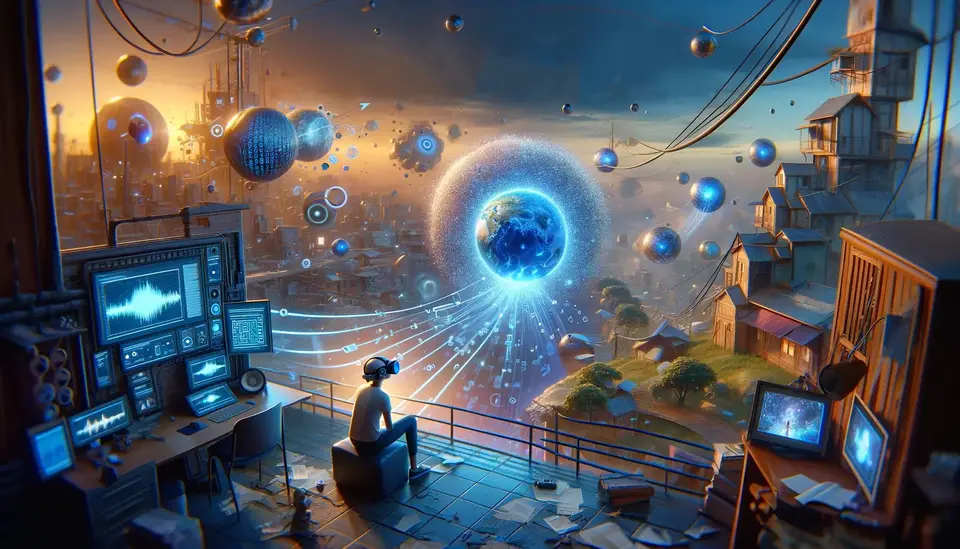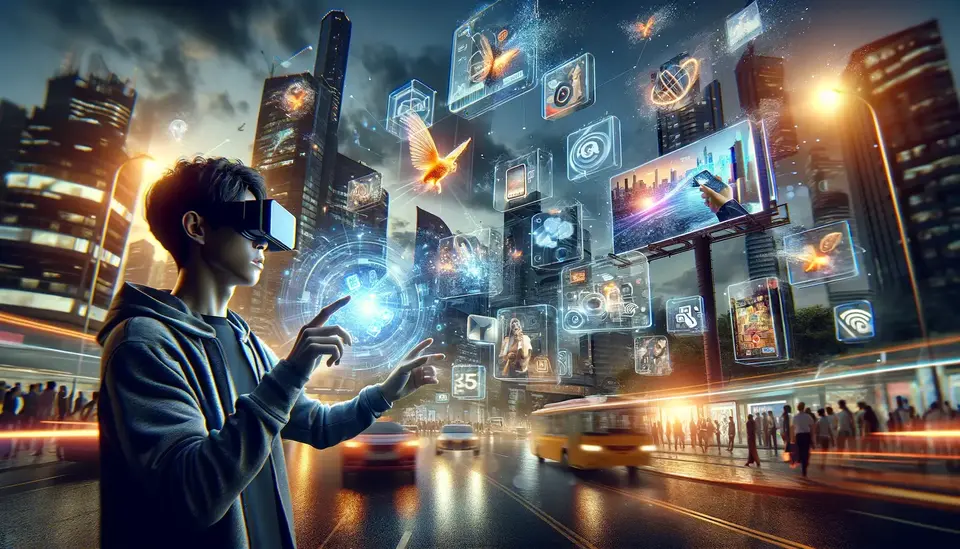The Future of Virtual Reality (VR)
Posted on April 12, 2023 3 minutes 512 words
Table of contents
Virtual reality (VR) has come a long way since its inception, transforming from a futuristic concept to an increasingly accessible technology. With rapid advancements in both hardware and software, VR has the potential to revolutionize various industries and redefine how we interact with digital worlds. In this blog post, we’ll explore the key advancements in VR technology, delve into its expanding applications, discuss the challenges that need to be overcome, and envision the long-term future of this immersive medium.
Key Advancements in VR Technology
The evolution of VR has been driven by significant improvements in hardware, including lighter and more comfortable headsets, intuitive controllers, and realistic haptic feedback devices. On the software side, graphics have become more lifelike, AI-powered experiences have become more personalized, and cloud computing has enabled seamless, large-scale experiences. Additionally, the advent of 5G and future wireless technologies promises to further enhance the fidelity and responsiveness of VR experiences.
Expanding VR Applications
- Gaming and Entertainment: VR has already transformed gaming with its immersive and interactive experiences. In the future, we can expect even more realistic and engaging content, as well as a greater focus on interactive storytelling and shared virtual experiences.
- Education and Training: VR has the potential to revolutionize learning by offering immersive, hands-on training simulations that can be tailored to various industries, from aviation to medicine.
- Healthcare: VR is being increasingly used in healthcare for diagnostics, treatment planning, therapy, and medical training, enabling doctors and patients to visualize complex medical data and procedures.
- Social VR: Virtual social spaces are on the rise, allowing users to connect, collaborate, and communicate remotely in immersive environments.
- Architecture and Design: VR can streamline the design process by offering virtual walkthroughs of proposed structures and enabling real-time collaboration between architects and clients.
Overcoming Challenges and Barriers to Adoption
While VR technology has come a long way, there are still challenges to overcome. Technical limitations, such as latency, resolution, and motion sickness, need to be addressed to ensure seamless experiences. Furthermore, accessible and affordable VR hardware is essential for mass adoption. Ethical and privacy concerns surrounding the use of VR technology must also be considered, as well as the potential impact on mental health and social interactions.
The Long-term Vision for VR
As we look to the future, we can expect innovations in VR technology, such as brain-computer interfaces and holography, which could lead to even more immersive experiences. The convergence of VR with other technologies like augmented reality (AR) and the metaverse will create a new era of interconnected digital worlds. In the long term, VR could play a significant role in shaping the future of work, entertainment, and social interaction.
Conclusion
The future of virtual reality is an exciting frontier that promises to reshape various aspects of human life. By staying informed and engaged with the ongoing evolution of VR technology, we can help shape its development in a responsible and inclusive manner. The possibilities are virtually endless, and the journey into this immersive new world has only just begun.








